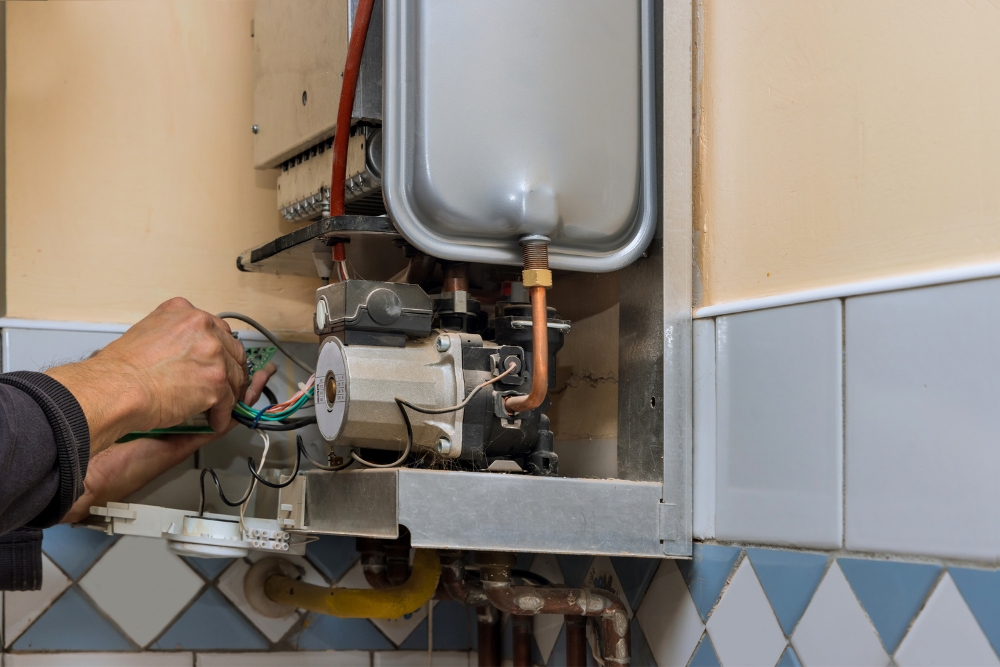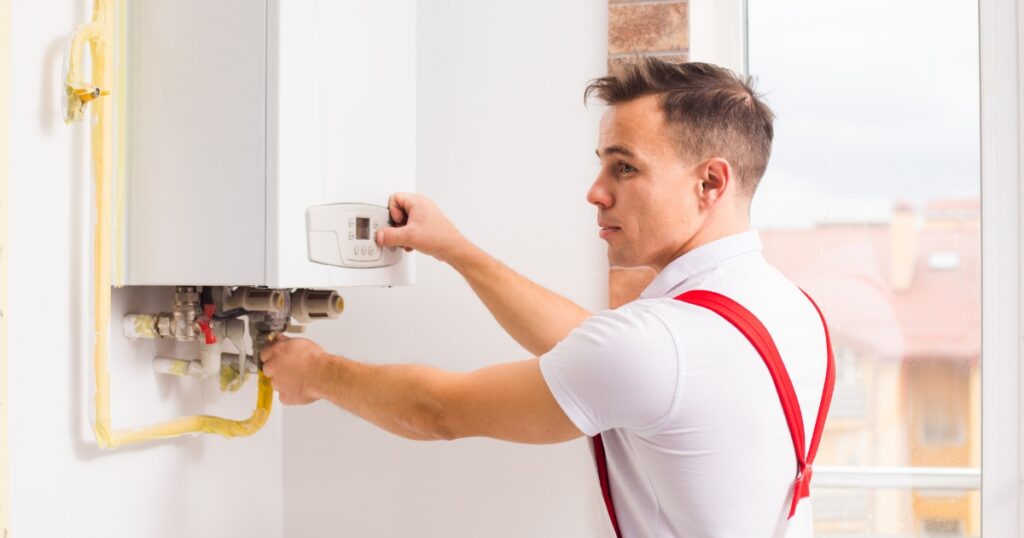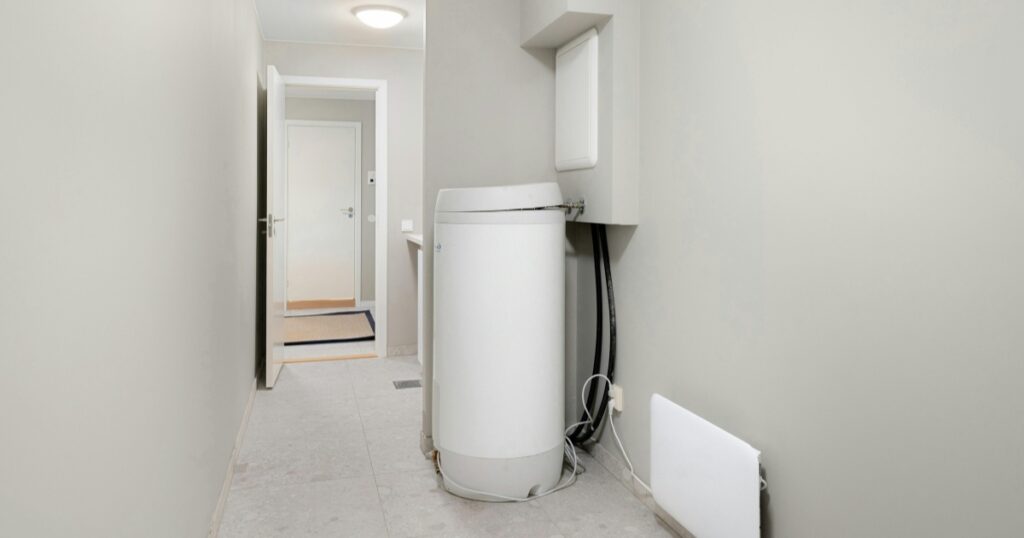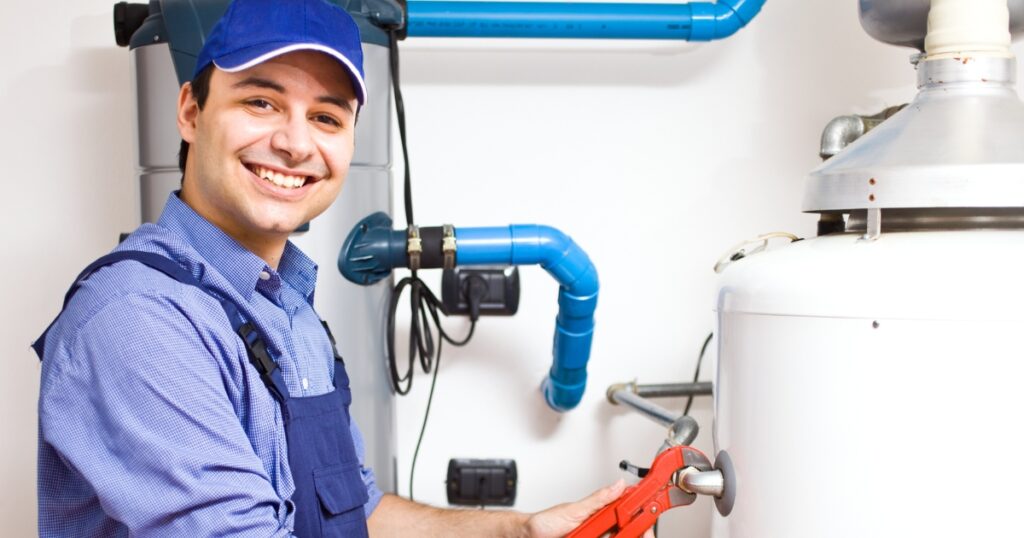Stuck in a pickle deciding whether to fix up your gas or electric hot water heater? We feel you, mate. After doing our own bit of research, we’ve come to see that gas systems usually give more bang for your buck than electric ones.
This blog aims to guide you through making the right decision – weighing up costs, efficiency differences, lifespan and even the environmental impact.
Key Takeaways
- Gas hot water systems are generally more cost-effective and energy-efficient than electric ones.
- Electric hot water systems are easier to install and maintain, making them a better option in areas with limited gas supply.
- Factors to consider for hot water heater repairs include the age of the unit, repair costs, and energy efficiency.
- Gas hot water heaters have lower repair costs but require more frequent maintenance compared to electric models.
- Gas hot water systems produce greenhouse gas emissions, while electric ones may use electricity from fossil fuel sources.
- The lifespan of a gas hot water heater is around 8 to 12 years, while an electric one lasts about 10 to 15 years. Regular maintenance can extend their lifespans.
Gas vs. Electric Hot Water Systems
Gas hot water systems and electric hot water systems are two popular options for heating water in homes. When comparing the two, it is important to consider factors such as cost, efficiency, and availability.
Gas hot water systems often have lower running costs compared to electric ones due to the lower cost of natural gas. They are also more efficient at heating water quickly, making them ideal for larger households with high demand for hot water.

However, electric hot water systems are easier to install and maintain, and they may be a better option in areas where gas supply is limited or unavailable.
Comparison of costs
Gas hot water systems often seem more expensive upfront compared to their electric counterparts. However, it’s not just about the initial purchase and installation costs – you need to consider the long-term running costs too.
Generally speaking, gas heaters win this round as they’re cheaper to run than electric models. In fact, if well maintained, most gas units can make up for the higher upfront cost within a year or so due to lower ongoing expenses.
Yet, bear in mind that variables like local fuel prices and usage rates will also influence these calculations significantly. That said, deciding between a gas or an electric system based on costs alone may lead you astray; let’s now move into other important factors you would want to consider before making a decision.
Efficiency differences
Gas and electric hot water systems differ in terms of efficiency. Gas water heaters are generally more energy efficient and heat water faster compared to electric models. This means that gas hot water systems can provide you with a steady supply of hot water, even during peak usage times.
On the other hand, electric hot water systems may take longer to heat up the same amount of water, resulting in potential delays when multiple people need access to hot water simultaneously.
When it comes to efficiency, gas is the preferred choice for those who prioritise a fast and consistent hot water supply.
Availability and access
Gas hot water systems are widely available and accessible, making them a popular choice for homeowners. Gas supply is readily available in many areas, ensuring that you can easily connect your gas water heater to the main supply.
This means you won’t have to worry about power outages affecting your hot water supply. Additionally, gas hot water systems are often more affordable and easier to install compared to electric models.
With their widespread availability and easy access, gas hot water heaters provide a convenient and reliable option for heating your home’s water supply.

Factors to Consider for Hot Water Heater Repairs
When it comes to hot water heater repairs, there are several factors that homeowners should consider. These include the age of the hot water heater, the cost of repairs, and its energy efficiency.
Age of the hot water heater
The age of your hot water heater is an important factor to consider when deciding whether to repair or replace it. Older models may be less energy efficient and more prone to breakdowns, resulting in higher repair costs over time.
Additionally, newer models often come with improved technology and features that can save you money on monthly energy bills. So, if your hot water heater is reaching the end of its expected lifespan (around 8-12 years for most models), it might be worth considering a replacement rather than investing in costly repairs.
Cost of repairs
Repair costs are an important factor to consider when deciding between gas and electric hot water heaters. Gas hot water systems generally have lower repair costs compared to electric models.
This is because gas heaters have simpler components and fewer intricate parts that may need maintenance or replacement. On the other hand, repairs for electric hot water systems can be more expensive due to the complexity of electrical components and wiring.
It’s essential to keep in mind that while gas heaters may have lower repair costs, they tend to require more frequent maintenance compared to their electric counterparts. Considering the long-term cost of repairs can help you make an informed decision about which type of hot water system is best for your home.
Energy efficiency
Gas and electric hot water systems differ in terms of energy efficiency. Gas hot water systems are generally more energy efficient than electric models, as they heat water faster and require less energy overall.
This means that gas systems can provide hot water more quickly while using less power, leading to lower energy bills in the long run. On the other hand, electric hot water systems may be more expensive to operate due to their higher electricity consumption.
When considering a repair or replacement for your hot water system, it’s important to take into account the potential savings in energy costs offered by gas systems compared to electric ones.
Pros and Cons of Repairing a Gas Hot Water Heater
Gas hot water heaters have several advantages, such as cost-effectiveness and potential environmental impact. However, they also have drawbacks, including a limited lifespan. Find out more about the pros and cons of repairing a gas hot water heater in this blog post.
Cost-effectiveness
Gas hot water systems are generally more cost-effective than electric hot water systems. While both types of systems have similar upfront costs, gas heaters are cheaper to run in the long term.

Most gas water heaters can recoup their higher initial investment within a year, especially if they are well maintained. This means that homeowners can enjoy lower monthly costs and save money on their energy bills by choosing a gas-hot water system.
Plus, with the efficiency and faster heating capabilities of gas heaters, you’ll be able to enjoy hot water whenever you need it without breaking the bank.
Environmental impact
Gas and electric hot water systems have different environmental impacts that should be taken into consideration. Gas hot water systems produce greenhouse gas emissions during operation, contributing to climate change.
On the other hand, electric hot water systems do not produce direct emissions during operation, but the electricity used to power them may come from fossil fuel sources with their own environmental impact.
When deciding between gas and electric hot water repairs, it’s important to consider how your choice will affect the environment. Gas hot water systems have higher carbon emissions compared to electric models.
However, some regions may have cleaner sources of electricity which can make electric models a more environmentally friendly option.
Lifespan of the hot water heater
Gas and electric hot water heaters have different lifespans. On average, a gas hot water heater can last between 8 to 12 years, while an electric hot water heater has a lifespan of around 10 to 15 years.
However, these numbers can vary depending on factors such as maintenance, usage, and the quality of the unit. It’s important to keep in mind that regular maintenance and timely repairs can extend the lifespan of your hot water heater.
So, it’s always a good idea to schedule regular check-ups and address any issues promptly to ensure optimal performance and longevity for your hot water system.
Pros and Cons of Repairing an Electric Hot Water Heater
In considering whether to repair an electric hot water heater, there are several pros and cons to take into account. One advantage is that repairing an electric hot water heater tends to be more affordable compared to gas heaters.
Additionally, electric heaters do not emit harmful gases during operation, making them a safer option for homes with children or pets. However, the lifespan of an electric hot water heater may be shorter than a gas heater, which could mean more frequent repairs in the long run.
Affordability
Gas hot water systems are generally more affordable than electric hot water systems. While both types of heaters have similar upfront costs, gas is typically cheaper to run in the long term.
This cost-effectiveness means that most gas water heaters can recoup their higher initial investment within a year if they are well-maintained. On the other hand, electric water heaters may be more expensive to operate, but they heat water more efficiently.
When considering affordability, it’s important to weigh the running costs and potential savings of each system type. Additionally, rebates for switching from gas to electric hot water may be available, and the size of the water heater can also impact your decision between gas and electric options.
Safety considerations
When it comes to hot water heater repairs, safety considerations are of utmost importance. Gas hot water systems pose certain risks that need to be taken into account. For instance, gas leaks can lead to carbon monoxide poisoning if not detected and addressed promptly.
It is crucial to have proper ventilation and carbon monoxide detectors installed near the gas hot water system. Additionally, regular maintenance and inspections should be conducted by qualified professionals to ensure that all components are functioning correctly and safely.
On the other hand, electric hot water systems eliminate the risk of gas leaks but come with their own set of precautions. Electrical connections must be properly grounded, and any faulty wiring or electrical issues should be addressed immediately to prevent potential hazards such as shocks or fires.
Emergency Hot Water Repair at Your Service
Choosing between gas and electric for your hot water needs? Hot Water Repairs Today has you covered with expert repair services for both. Don’t let issues with your gas or electric hot water heater disrupt your comfort – take action now. Contact us for swift and reliable repairs, tailored to the specific needs of your system. Trust Hot Water Repairs Today to be your go-to partner in ensuring your hot water supply stays efficient, whether it’s gas or electric. Don’t wait for disruptions to become a hassle – reach out now and address any issues with confidence. Act today for a consistently warm and reliable hot water experience. Contact us now!






